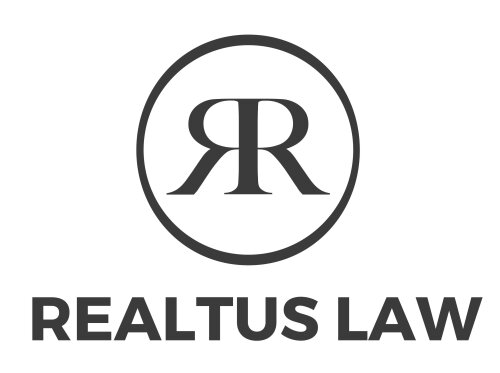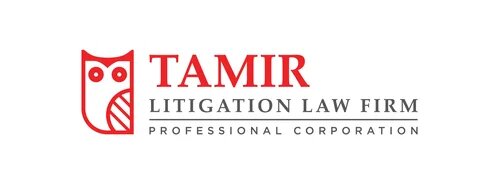Best Corporate Governance Lawyers in Richmond Hill
Share your needs with us, get contacted by law firms.
Free. Takes 2 min.
List of the best lawyers in Richmond Hill, Canada
About Corporate Governance Law in Richmond Hill, Canada
Corporate governance refers to the systems, rules, and processes by which companies are directed and controlled. In Richmond Hill, Canada, corporate governance is shaped by federal and provincial laws, regulations, and accepted industry standards. These legal frameworks are designed to ensure that businesses operate with transparency, accountability, and in the best interests of stakeholders including shareholders, employees, customers, and the wider community. Whether you operate a corporation, a not-for-profit organization, or a small business, understanding your legal obligations under corporate governance law is vital to sustaining good business practices and compliance.
Why You May Need a Lawyer
Legal assistance in corporate governance is important for several scenarios, including:
- Setting up a new corporation and drafting bylaws and shareholder agreements
- Ensuring ongoing regulatory compliance with federal and provincial laws
- Advising directors and officers on fiduciary duties and potential conflicts of interest
- Resolving disputes between shareholders, directors, or partners
- Implementing best practices for risk management and ethical business conduct
- Conducting internal investigations or responding to regulatory inquiries
- Assisting with mergers, acquisitions, or restructuring processes
- Navigating annual meetings and reporting requirements
- Addressing issues related to minority shareholders or corporate recordkeeping
Because corporate governance directly affects the responsibility and reputation of your business, consulting a knowledgeable lawyer ensures that your operations remain both lawful and efficient.
Local Laws Overview
In Richmond Hill, corporate governance is influenced by laws at both the federal and provincial level. Ontario’s Business Corporations Act (OBCA) and the federal Canada Business Corporations Act (CBCA) are the main statutes guiding corporate activity. These laws establish:
- Requirements for board composition, director qualifications, and meetings
- Duties and liabilities of directors and officers, including the duty to act honestly, in good faith, and in the best interests of the corporation
- Procedures for shareholder rights, annual meetings, and resolutions
- Disclosure requirements and maintenance of corporate records
- Audit committee mandates and financial reporting standards
- Rules on conflicts of interest and corporate opportunity
Additionally, publicly listed companies must also comply with regulations set by the Ontario Securities Commission and related industry bodies. The municipality of Richmond Hill does not set its own corporate governance rules, but local businesses must also adhere to applicable zoning, licensing, and operational by-laws.
Frequently Asked Questions
What is the role of a Board of Directors in corporate governance?
The Board of Directors oversees the management of the corporation, sets strategic direction, ensures regulatory compliance, and safeguards the interests of shareholders and stakeholders.
What are fiduciary duties?
Fiduciary duties are legal obligations that require directors and officers to act in good faith and in the best interests of the corporation, avoiding personal gain at the company’s expense.
Does my business need a corporate governance policy?
While not mandatory for all businesses, a formal governance policy helps clarify roles, procedures, and ethical standards. It is especially recommended for growing, complex, or publicly traded companies.
How are disputes between shareholders handled?
Disputes are typically governed by the corporation’s bylaws and shareholder agreements. Litigation or alternative dispute resolution methods, like mediation or arbitration, may be used if internal resolution fails.
Are annual general meetings required?
Yes, corporations governed by the OBCA or CBCA must hold annual general meetings to approve financial statements, appoint auditors, and elect directors.
What records must corporations maintain?
Corporations must keep records such as minutes of meetings, resolutions, share registers, financial statements, and a register of directors and officers at the registered office or another location in Ontario.
Who can be a corporate director?
Directors must be individuals (not corporations), be at least 18 years old, and, in some instances, must be Canadian residents depending on the corporation’s jurisdiction.
What are the consequences of not complying with corporate governance laws?
Non-compliance can result in regulatory penalties, fines, director or officer liability, loss of public trust, and in severe cases, dissolution of the corporation.
Do non-profit organizations have similar governance requirements?
Non-profit organizations also have rules for governance, though some requirements differ based on their federal or provincial incorporation status. They must maintain proper records, hold meetings, and report activities.
How can I update my corporation’s bylaws?
Bylaws can be amended by special resolution of the shareholders, usually requiring a two-thirds majority vote, followed by proper filing and recordkeeping.
Additional Resources
Below are some local and national organizations and resources that provide more information and support on corporate governance:
- Ontario Ministry of Public and Business Service Delivery - Business registration and corporate filings
- Ontario Securities Commission - Guidelines for public companies
- Canadian Bar Association - Corporate law resources
- Richmond Hill Board of Trade - Local business resources and networking
- Industry Canada - Information for federally incorporated companies
- Community Legal Clinics throughout York Region for legal guidance
Next Steps
If you believe you need legal advice or representation regarding corporate governance in Richmond Hill, consider the following steps:
- Identify your primary concerns and gather relevant documents such as corporate records, bylaws, and correspondence
- Research and contact local lawyers or law firms with expertise in corporate and business law
- Prepare a list of questions and desired outcomes before your consultation
- Ask about experience with corporate governance issues specific to your type of business
- Discuss fees and representation scope in advance
- Stay informed and proactive on compliance requirements to prevent future disputes or penalties
Proper legal guidance can provide peace of mind and safeguard your business in all aspects of corporate governance. Do not hesitate to reach out to a qualified professional who can guide you through the complexities of the law in Richmond Hill, Canada.
Lawzana helps you find the best lawyers and law firms in Richmond Hill through a curated and pre-screened list of qualified legal professionals. Our platform offers rankings and detailed profiles of attorneys and law firms, allowing you to compare based on practice areas, including Corporate Governance, experience, and client feedback.
Each profile includes a description of the firm's areas of practice, client reviews, team members and partners, year of establishment, spoken languages, office locations, contact information, social media presence, and any published articles or resources. Most firms on our platform speak English and are experienced in both local and international legal matters.
Get a quote from top-rated law firms in Richmond Hill, Canada — quickly, securely, and without unnecessary hassle.
Disclaimer:
The information provided on this page is for general informational purposes only and does not constitute legal advice. While we strive to ensure the accuracy and relevance of the content, legal information may change over time, and interpretations of the law can vary. You should always consult with a qualified legal professional for advice specific to your situation.
We disclaim all liability for actions taken or not taken based on the content of this page. If you believe any information is incorrect or outdated, please contact us, and we will review and update it where appropriate.









